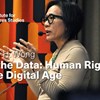innovations
Director of innovation to the board
We welcome a new member to our board, Andreas Muranyi Scheutz! He is Director of research and innovation in Region Stockholm and has previously had the same position at the Swedish embassy in New Delh
Julie Jebeile: Technological innovation facing climate change
Venue: Institute for Futures Studies, Holländargatan 13 in Stockholm, or online Research seminar with Julie Jebeile, SNF professor at the Institute of Philosophy of Universität Bern. She is a philosophe
The Impact of Ageing on Innovation and Productivity Growth in Europe
Vienna Institute of Demography and Institute for Futures Studies, Research Report No. 28 Various studies on policy implications of demographic changes in national and community policies: Lot6: Impact o
Democratic revolutions as institutional innovation diffusion: Rapid adoption and survival of democracy
Technological Forecasting and Social Change, Volume 80, Issue 8, October 2013, Pp. 1546–1556 http://dx.doi.org/10.1016/j.techfore.2013.02.002 Abstract Recent ‘democratic revolutions’ in Islamic countries
CANCELED. Escaping Network Gravity: Lessons from Dynamic Network Research for Change and Innovation
Balazs Vedres, Central European University

Data-driven innovation i welfare services and public priority setting with Karim Jebari
Presentation from the workshop "AI and autonomous decision making" at the Institute for Futures Studies in Stockholm, October 2017.
Wendy H. Wong: We, the Data: Human Rights in the Digital Age
Venue: Institutet för framtidsstudier, Holländargatan 13, 4th floor, Stockholm, or online. Research seminar with Wendy H. Wong, Professor of Political Science and Principal's Research Chair at the UniveThis talk will discuss some of the key themes from We, the Data: Human Rights in the Digital Age, which is a new book published by MIT Press. Human rights are one of the major political innovations of the 20th century. Their emergence after World War II and global uptake promised a new world in which human autonomy, community, dignity, and equality could be protected. Datafication, however, poses some unique challenges for our human rights framework because they are “sticky” and ubiquitous in emerging technologies such as artificial intelligence (AI). The talk focuses on five takeaways from the book that ties AI and data to human rights.

Wendy H. Wong: We, the Data - Human Rights in the Digital Age
Research seminar with Wendy H. Wong, Professor of Political Science and Principal's Research Chair at the University of British Columbia. In this talk Wendy H. Wong discusses some of the key themes fr
Deep learning diffusion by infusion into preexisting technologies - Implications for users and society at large
in: Technology in Society. 63, 101396 Abstract:Artificial Intelligence (AI) in the form of Deep Learning (DL) technology has diffused in the consumer domain in a unique way as compared to previous gene, i.e., by being added to preexisting technologies that are already in use. We find that DL-algorithms for recommendations or ranking have been infused into all the 15 most popular mobile applications (apps) in the U.S. (as of May 2019). DL-infusion enables fast and vast diffusion. For example, when a DL-system was infused into YouTube, it almost immediately reached a third of the world's population. We argue that existing theories of innovation diffusion and adoption have limited relevance for DL-infusion, because it is a process that is driven by enterprises rather than individuals. We also discuss its social and ethical implications. First, consumers have a limited ability to detect and evaluate an infused technology. DL-infusion may thus help to explain why AI's presence in society has not been challenged by many. Second, the DL-providers are likely to face conflicts of interest, since consumer and supplier goals are not always aligned. Third, infusion is likely to be a particularly important diffusion process for DL-technologies as compared to other innovations, because they need large data sets to function well, which can be drawn from preexisting users. Related, it seems that larger technology companies comparatively benefit more from DL-infusion, because they already have many users. This suggests that the value drawn from DL is likely to follow a Matthew Effect of accumulated advantage online: many preexisting users provide a lot of behavioral data, which bring about better DL-driven features, which attract even more users, etc. Such a self-reinforcing process could limit the possibilities for new companies to compete. This way, the notion of DL-infusion may put light on the power shift that comes with the presence of AI in society.
Dark side of resilience: systemic unsustainability
Frontiers in Sustainability vol 4 Abstract Resilience is often presented as a championing solution for tackling the multi-level environmental, security, health, and financial threats facing the whole hum








